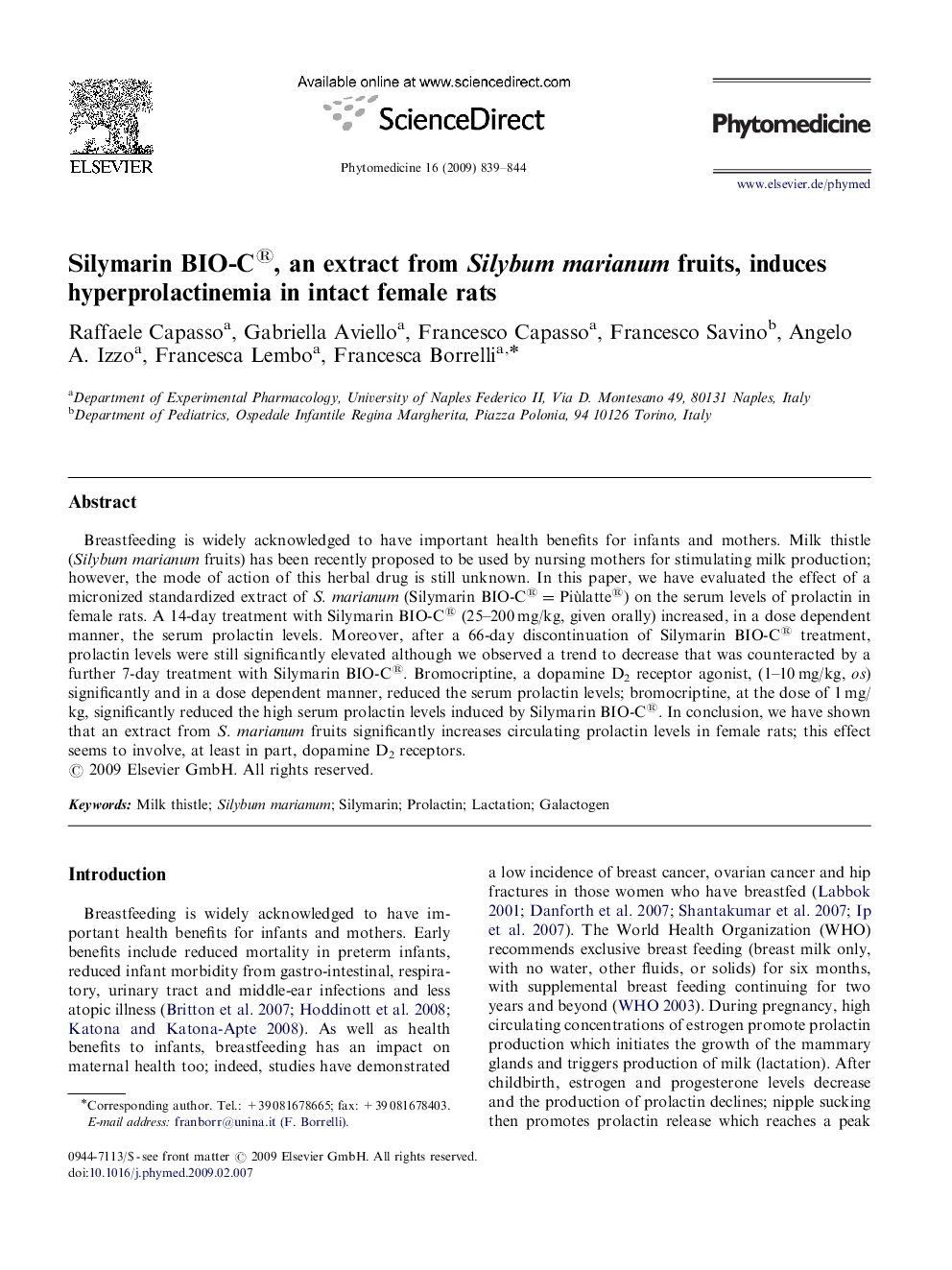| Article ID | Journal | Published Year | Pages | File Type |
|---|---|---|---|---|
| 2497425 | Phytomedicine | 2009 | 6 Pages |
Breastfeeding is widely acknowledged to have important health benefits for infants and mothers. Milk thistle (Silybum marianum fruits) has been recently proposed to be used by nursing mothers for stimulating milk production; however, the mode of action of this herbal drug is still unknown. In this paper, we have evaluated the effect of a micronized standardized extract of S. marianum (Silymarin BIO-C®=Piùlatte®) on the serum levels of prolactin in female rats. A 14-day treatment with Silymarin BIO-C® (25–200 mg/kg, given orally) increased, in a dose dependent manner, the serum prolactin levels. Moreover, after a 66-day discontinuation of Silymarin BIO-C® treatment, prolactin levels were still significantly elevated although we observed a trend to decrease that was counteracted by a further 7-day treatment with Silymarin BIO-C®. Bromocriptine, a dopamine D2 receptor agonist, (1–10 mg/kg, os) significantly and in a dose dependent manner, reduced the serum prolactin levels; bromocriptine, at the dose of 1 mg/kg, significantly reduced the high serum prolactin levels induced by Silymarin BIO-C®. In conclusion, we have shown that an extract from S. marianum fruits significantly increases circulating prolactin levels in female rats; this effect seems to involve, at least in part, dopamine D2 receptors.
